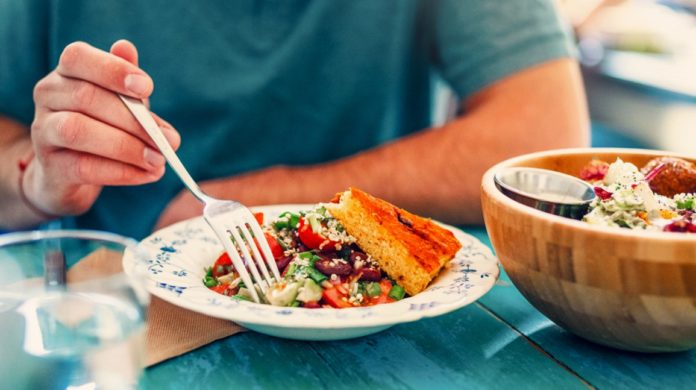This post is based on the 5 Best and Rich Plant Based Food Sources of Vitamin D that Vegetarians can easily include their diet and quickly increase the levels of Vitamin D.
Vitamin D is one of the most essential nutrients for maintaining the proper health of the body. It is also known as the vitamin obtained from sunshine and a fat-soluble nutrient essential for optimal body health.
Vitamin D helps the body to absorb calcium from food and maintain an adequate amount of magnesium and phosphate concentrations. These three are the crucial nutrients for teeth, bones, and muscles proper health. Moreover, vitamin D also plays a crucial role in developing brain functions, heart functions, immune system, and mental health of the body. Thus, it is a very vital nutrient for overall body health.
Various researches have been conducted and show that these days people are suffering from low vitamin D levels in the body, and this has become widespread worldwide causes of chronic diseases. Symptoms of vitamin D deficiency include signs like an increase in fatigue, muscle pains, degrading bones health, and stunted growth in children.
To maintain appropriate levels of vitamin D, the daily requirement of vitamin D for children under 12 months is about 10 mcg, while children between 1–13 years old is 15 mcg. For adults and pregnant lady or nursing women, they should get about 15mcg to 20 mcg of vitamin D per day, so that they can keep care of themselves as the baby inside their womb.
However, there are very few foods that contain vitamin D, but some of the food contains a good amount of it. These food products are mostly obtained from animal products. Thus, you have interesting and tasty options to increase the levels of vitamin D naturally in your body.
Here are five best plant-based food sources of vitamin D from food that vegetarians can easily include in their diet as well as some of them are suitable for vegans diet followers.
Direct Sunshine
When skin exposed to Sun, it has characteristics of producing vitamin D from the sun’s ultraviolet B rays. This is the most common way that most of the people get the daily value of vitamin D.
As per the reports from National Institute of Health, exposing arms, face, back, and legs to direct sunlight for about 5–30 minutes twice or thrice in a week — without applying sunscreen — can do wonders and give you the sufficient rays to generate the optimal amount of vitamin D.
One thing to take care of, do not excessively expose to the sun; it might increase the risk of getting skin cancer. Hence, the American Academy of Dermatology suggested that they do not entirely rely on sun rays as the main source of vitamin D.
Mushrooms
Mushrooms have the special ability to quickly increase and produce vitamin D levels when get exposed to Sun’s UV rays. This makes mushrooms the only edible food and plant-based source of vitamin D.
For example, wild mushrooms, when exposed to sunrays, may boast anywhere around 3.8 mcg to 28 mcg of vitamin D per 100 grams of serving.
One of the best things about Mushrooms is that their vitamin D content remains in the body for more duration. Mushrooms have a high shelf life and appear as a useful natural source of raising vitamin D levels in the body.
One tip – when shopping for mushrooms, first look at the label mentioning vitamin D content. If you get trouble finding whether the mushrooms exposed UV rays or not, try your luck at the local food store or farmers market.
Fortified Foods
- Cow Milk:Depending on the geographical regions, one can expect 1 cup or 250ml of cow milk that contains 3 mcg of vitamin D.
- Plant-Based Milk and Beverages:Milk from almonds, soy, rice, oats, or juice from orange — can be fortified to give similar amounts of vitamin D as like from cow milk. One cup or 250 ml of plant-based milk and juice may give up to 2.5 mcg of vitamin D.
- Yogurt or Curd: There are dairy or Non-dairy yogurts or curds that are fortified in vitamin D, serve about 1.3 mcg of vitamin D in every 100 grams.
- Tofu or Paneer: Not all the tofu or paneer are fortified, but those are fortified can give around 2.5 mcg of vitamin D per 100 grams of serving.
- Hot & Cold Cereals. Ready to eat cereals or oatmeal is often fortified with this vitamin. Half cup or 120 grams these cereals can provide up to 3 mcg of Vit D, as per the quality and variety of the product.
Cheese
One other natural sources of vitamin D is from Cheese D, albeit in small amounts.
Most of the cheese can contain about 0.2 to 0.6 mcg of vitamin D, per 50 grams or 2 oz. of serving. The level of vitamin content basically depends on the way of cheese is manufactured.
Cheese with higher vitamin D content is Cheddar, Fontina, and Monterey, whereas mozzarella has a bit less. Soft cheese like cottage, cream cheese, or ricotta, have zero amount of vitamin Din it.
Some kinds of cheese can also offer fortified with vitamin D, which will be mentioned on the label list.
Supplements
If you concerned that you are not getting plenty of vitamin D from food, then supplements can act as a consistent, reliable, and a good source of vitamin D. These supplements come in two forms:
- Vitamin D2: It is mostly harvested from the mushrooms or yeast exposed to Sun’s UV light.
- Vitamin D3: It is obtained from fish oil or wool from sheep. Recently there is a vegan form developed from lichen.
We hope these natural sources of Vitamin D help you increase or boost the levels of this vitamin quickly and make your body strong without depending on any medicines. These Vitamin D foods can easily be consume by vegan or vegetarians diet followers.

















